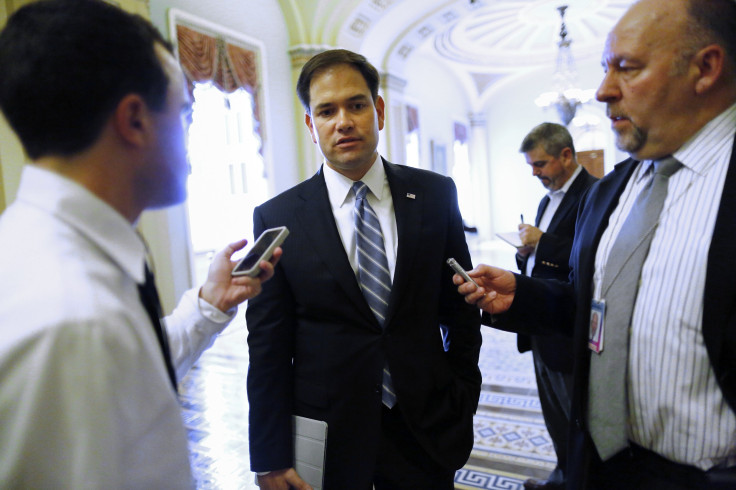Immigration Reform 2013: ‘Time For Proponents To Be Realistic,’ Says Rubio

President Barack Obama is hoping that Congress passes a comprehensive immigration reform bill before 2013 ends, but some Republicans have news for him and other proponents: it’s time to be get back reality about what’s possible on that issue.
If you ask U.S. Sen. Marco Rubio, R-Fla., a member of the tea party factions, if Obama and Democrats want to see some movement on immigration reform then they are going to have to be willing to find some common group with Republicans. That common ground, based on his interview on “Fox and Friends” Tuesday morning, is to focus on where there is bipartisan agreement on the issue.
“First of all, I think we need to be realistic about it,” Rubio told the Fox News. “We’ve been lectured now for the better part of a month about how my side needs to be realistic about what was possible on Obamacare because the president controls the White House and the Democrats control the Senate. Now, I think it’s time for proponents of immigration reform to be realistic about what’s achievable on immigration.”
That reality, Rubio said, is “This idea that somehow the House is just going to fold and take up the Senate bill and pass it is also a fool’s errand. The reality of it is that there’s a lot that Americans agree on, on immigration. We should pursue the things we agree on and do what we can to make progress. And the other issues might take more time.”
From religious organizations, to labor, to business groups, to activists and lawmakers, there is obvious pressure on Congress, and especially on House Republicans, to identifiy a plan that overhauls the current system, which most agree is untenable, if not completely broken. Democrats argue that such overhaul must include a path to citizenship for undocumented immigrants, while Republicans say border security must be improved to keep illegal entry down.
But both sides agree that the current immigration system needs fixing. Moreover, even experts at Heritage Action, the political arm of the conservative-leaning Heritage Foundation think tank, have said passing immigration reform is “something we absolutely need to do.”
What's more, president himself last week --pointing to immigration as one of three priorities where there is bipartisan agreement -- said the way business is done in Washington, D.C. needs to change and urged lawmakers, “If we disagree on something we can move on and focus on the things we agree on and get some stuff done.”
The sticking point on immigration reform? What to do with the 11 million people who are in the United States without legal papers. Hence, the question now is whether Democrats and proponents of reform are willing to let lawmakers proceed to pass legislation in areas of reform where there is bipartisan agreement such as legal migration, border security, and more employer accountability.
Advocates like America’s Voice appear to be not too particular about legislation drafting process and deal-making, so long as immigration reform occurs; the group supports the Democrats’ comprehensive approach, but has indicated it is willing to look beyond the House Republicans’ piecemeal process so long as the 11 million is a part of the end product. However, regarding the undocumented immigrant population, the devil is really in the details, hence the group wants to see the language of any measure that would affect that immigrant category.
Lynn Tramonte, deputy director at America's Voice, told the International Business Times on Tuesday that what lawmakers should not do is create policies that tell immigrants “you can work for us, you can take care of us, but you can't be one of us.”
“If you want to start with a consensus issue start with citizenship,” she said, noting that polls have shown a majority of Americans in favor of giving immigrants the option. “What we haven't done is deal realistically with people who are here without paper. [It's] the core issue that hasn't been dealt with. ... Nobody is proposing automatic citizenship or get to the front of the line amnesty.”
But Rubio, said the ultimate decision Democrats need to make is to decide whether or not “Immigration reform about solving a problem or is it about using it as a political weapon to win elections?If it’s about solving a problem, they will look for ways to make progress by finding common ground with Republicans.”
© Copyright IBTimes 2024. All rights reserved.






















